(748 products available)


















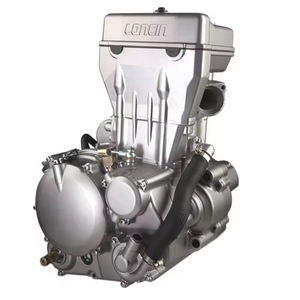
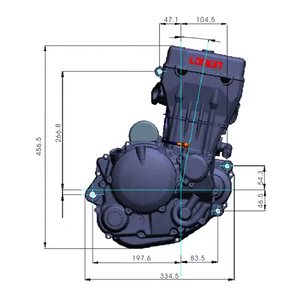
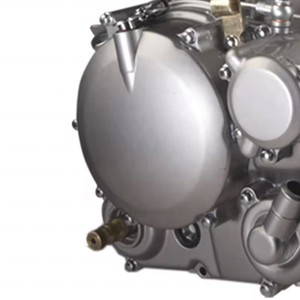
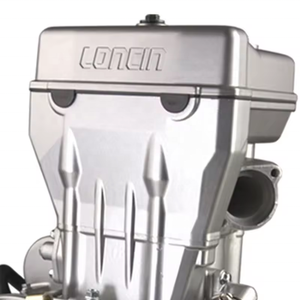
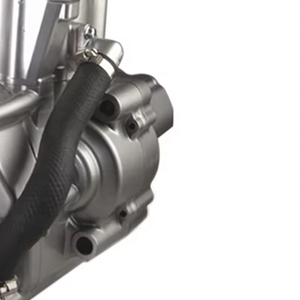
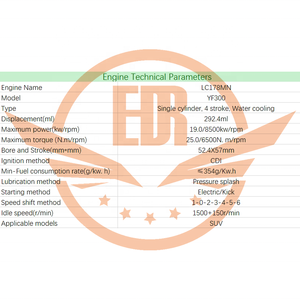































































































































































































































The diesel engine powers many heavy-duty equipment and vehicles used in industries like construction, mining, and logistics. The 500cc diesel engine is a small, efficient type of diesel engine generally used for light-duty applications and some small vehicles, especially in countries where the use of diesel for its fuel economy is widespread. Although small, there are still several common types of small diesel engines that can be found ranging from kinds of cars to generators:
Direct Injection Diesel Engine:
This is a standard diesel engine design widely used in modern vehicles. In a direct injection diesel engine, fuel is injected directly into the combustion chamber after the air has been compressed. The high compression ratio in direct injection engines leads to more efficient fuel combustion, contributing to better fuel economy and increased power output.
Indirect Injection Diesel Engine:
Indirect injection diesel engines are an alternative to direct injection designs, albeit less common in newer vehicles. In indirect injection engines, fuel is injected into a pre-combustion chamber rather than directly into the main combustion chamber. The fuel then ignites in the pre-combustion chamber and moves into the main chamber. This design improves the smoothness and quietness of engine operation by reducing the rapid pressure buildup that occurs with direct injection. Indirect injection engines can also be less sensitive to fuel quality, making them suitable for regions with limited access to high-quality diesel fuel.
Turbocharged Diesel Engine:
A turbocharged diesel engine utilizes a turbocharger to boost engine power output and enhance efficiency. The function of the turbocharger is to use exhaust gas energy to compress and introduce more air into the combustion chamber. This process increases the amount of air available for burning fuel, which results in higher power production without increasing engine size. With the additional air supplied by the turbocharger, fuel combustion becomes more complete, and fuel economy also improves.
Common Rail Diesel Engine:
A common rail diesel engine uses a modern fuel injection system known as common rail fuel injection. This system features a single high-pressure fuel line (common rail) that supplies fuel to multiple injectors located throughout the engine. Common rail diesel engines benefit from precise control over the timing, quantity, and pressure of fuel injections. This leads to smaller explosions within the engine that reduce noise and vibration. Additionally, the common rail system promotes efficient fuel utilization, resulting in improved fuel economy and lowered emissions.
Small Diesel Generator Engines:
Small diesel generator engines are usually designed to output between 500cc-3,000cc and are also used when there is no access to fuel and electricity. These small diesel engines power portable and standby generators that produce electricity. Diesel generator engines are preferred for generator use because of their reliability, durability, and ability to deliver consistent power. They serve as the primary source of mechanical energy that converts fuel into electrical energy to power various loads through the generator.
These are the relevant specifications to note when looking at 500 cc diesel engines for sale.
It's important to properly maintain diesel engines so they can continue working optimally and for a long time. Here are some general tips and practices on how to care for a 500 cc diesel generator or engine:
Due to their reliability, efficiency, and versatility, 500cc diesel engines are used in many industries and applications.
Industrial Machinery:
A large 500cc diesel engine is commonly used to power diesel forklifts. These material-handling vehicles are essential to the supply chain in factory floors, warehouses, and external loading bays. Their robust power enables them to pick, carry, and stack pallets with heavy goods.
Power Generation:
Diesel engines are frequently employed in the construction field as 500cc generating sets. Their function is to produce electrical power. This may be achieved directly, with the engine driving the generator, or indirectly, through the engine driving another machine that in turn drives the generator.
Automotive:
Diesel engines are frequently employed in the automotive sector to provide traction for vehicles. This includes not just passenger cars -despite the increasing prevalence of electric vehicles- but also buses, trucks, and heavier transport vehicles that are designed to function on public roads and transport people and goods from one place to another.
Agriculture:
A 500cc diesel engine is the beating heart of many an agricultural machine. In the fields, they clamp down and hold tight to harvests. With reliability as the requirements under which crops must be harvested, diesel engines also drive tractors, tillers, and threshers, among other machines.
Construction:
Construction is a scenario that presupposes the use of a diesel engine. In fact, these are the closest allies of diesel power. Cranes and excavators, along with loaders, and other major construction and earth-moving machines rely on diesel engines of all displacements, including the 500cc one, to multiply their power and assist them in carrying out heavy-duty construction.
Maritime:
In the maritime world, 500cc small diesel engines can work wonders in small crafts, speedboats, and fishing boats by providing traction. They are also used to drive the on-board generators that supply electric power while the vessel is at sea.
Considering factors like the intended use, load, performance, parts availability, overall size, and most importantly, the quality and reliability of the 500cc diesel engine can have a massive impact on efficiency, productivity, and operational costs.
Application:
Due to varying designs, 500cc diesel engines are used for different purposes. It is crucial to match the engine with the specific application requirements to ensure optimal performance and efficiency. For example, smaller 500cc diesel engines are mostly used in motorcycles and three-wheelers (autos), while larger ones are used in tractors or other heavy machinery.
Performance:
The power output and torque characteristics of a 500cc diesel engine are two major factors of its performance. Maximum power output is usually measured in horsepower, while torque is measured in pound-feet. Higher torque at lower RPMs is especially important for applications that require heavy loads to be moved. Buyers should choose an engine that provides the necessary power and torque for the specific application. More detailed breakdowns of what type of engine works with what specific vehicle can also be looked into further.
Size and weight:
Considering factors like the overall size and weight of the engine is important for packaging and transportation solutions, integrating the engine into the end product, and meeting weight constraints for the application.
Reliability and Durability:
A durable and reliable engine can cut-down maintenance costs and downtime. Prioritize engines with robust construction, high-quality materials, and proven designs.
Availability of parts and service:
It’s better to choose a 500cc diesel engine with good parts availability and service support. This also helps streamline maintenance and repair processes.
Q1: How much horsepower does a 500cc diesel engine have?
A1: Generally, a 500cc diesel engine can produce between 12 to 20 horsepower. However, this may vary depending on the manufacturer, model, and specific engine design.
Q2: What type of vehicles use a 500cc diesel engine?
A2: Smaller 500cc diesel engines are typically used in light-duty vehicles, agricultural machinery, generators, and marine applications. Some compact tractors, for instance, may utilize a 500cc diesel engine to ensure fuel efficiency and adequate torque for farming tasks. However, larger, more powerful diesel engines are used for heavy-duty trucks, buses, and大型農業機械.
Q3: Is a 500cc diesel engine considered small?
A3: Yes, a 500cc diesel engine is relatively small compared to larger diesel engines available on the market. There are even smaller engines, such as the 300cc diesel engine.
Q4: What is the fuel consumption of a 500cc diesel engine?
A4: The fuel consumption of a 500cc diesel engine can vary based on the engine's condition, the vehicle it powers, driving habits, and maintenance. On average, a 500cc diesel engine may consume around 4 to 6 liters of diesel per hour when running at full capacity. If calculating it on a per-vehicle basis, a light-duty vehicle with a 500cc diesel engine might achieve around 20 to 25 kilometers per liter of diesel.